Filsafat
We believe that God communicates to us through words, and that a Book, the Bible, is His revealed word to us. He gave us the gift of language and communication. Therefore, it is important to cultivate those gifts in students. God also uses stories, poetry, and other forms of literature to communicate His Word. Students will learn to read, comprehend, interpret, appreciate all types of literature. Finally, it is our duty as Christians to be able to participate in the arena of stories, literature, and ideas. Students will learn to understand, analyze, and sift ideas they encounter in literature, and be able to respond clearly through writing and discussion.
Course Objective
Students learn to define and identify important aspects of short stories, nonfiction essays, poetry, drama, the epic The Odyssey, and the novel Great Expectations. They relate information and ideas to their own lives and share these in various formats with their classmates (essays, speeches, posters, and so forth). They practice using vocabulary in different ways. They review basic grammar and mechanics.
Textbook
Adventures in Reading, Athena Edition, Holt, Rinehart and Winston, 1996
Vocabulary for Achievement, Third Course, by Margaret Richek, etc., Great Source, 1998
Writer’s Choice Grammar Workbook 9, McGraw-Hill, 1996
Materials
textbooks, library books
Time Allotment
50 minutes per day, 5 days a week, 2 semesters
Course Contents
- Short stories
- Drama – Shakespeare and Romeo and Juliet as well as others as teacher chooses
- Poetry
- Nonfiction
- Novel – Great Expectations
- Grammar: eight parts of speech, parts of the sentence and subject/verb agreement
- Mechanics
- Write papers related to the literature such as a theme of Romeo and Juliet, and another ending to “The Lady or the Tiger?”
Evaluation
- Worksheets/handouts and vocabulary: 1/3 of the grade
- Reports/projects/papers: 1/3 of the grade
- Tests and quizzes: 1/3 of the grade


